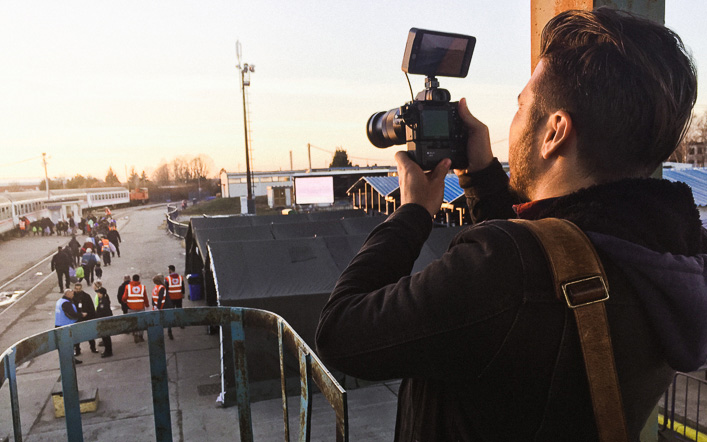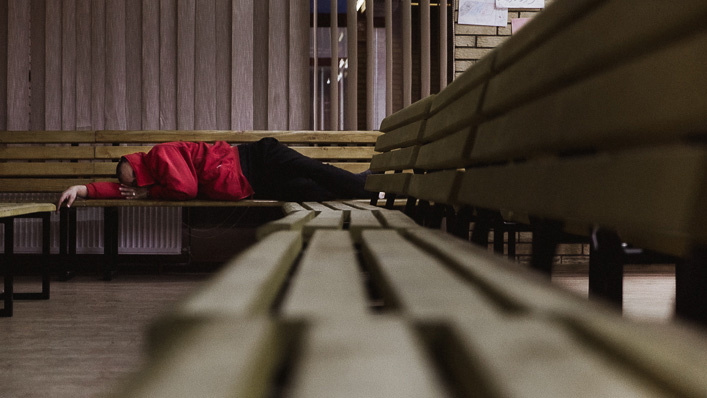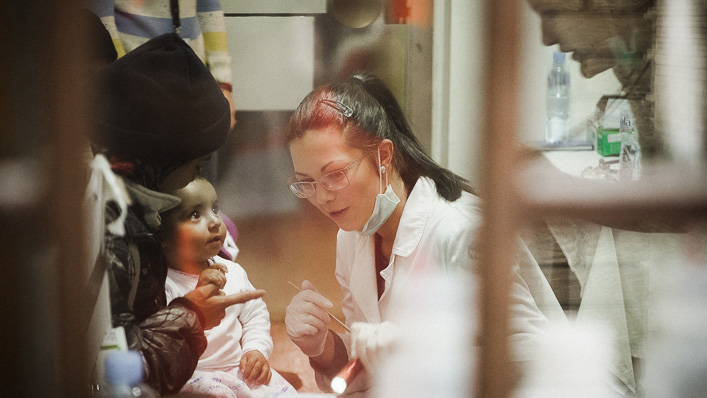So I’ve been putting off writing this post.
Not because I don’t know what I’m going to write about, but more because I know exactly what I am going to write about. And I’m not entirely yet sure my thoughts on it.
Hope.
For those of you just seeing this series for the first time, I am a videographer who’s been filming for the past week at different refugee camps in Europe. I’ve been journaling my experiences throughout. Meeting these people. Telling their stories. All that good stuff. It’s been a tough week, to say the least.

When I was a kid, maybe 12 or so, I remember a pastor telling me about hope.
He had me picture hell.
I did my best.
Looking back I probably wasn’t too accurate.
Then he told me to imagine a big set of doors in hell. I pictured wooden castle doors. With steel hinges. The pastor said that if I imagined the torment of hell, and the obvious desire to get out, and then imagined that big set of doors opening up every 10,000 years… for only three seconds… allowing an exit for anybody that pushed their way through… THAT would be hope. As slim as the chances are, this sliver of hope would completely change the dynamic reality of what hell is.
Do you agree?
For some reason, I’ve been thinking about this analogy a lot this week.
The fact is, a lot of these refugees are never going to make it to their destination. A lot are going to sell every possession they own, and deplete their life savings, all to fail in their objective of what this journey is supposed to provide.
They can’t cross whatever border they’re standing at, to enter the next country.
They can’t turn and go back home.
They are literally stuck.
… with seemingly no hope.
If I somehow found myself in this situation. If I somehow found myself standing at the border of a country; the other side reflecting safety and rest and possibility. If I somehow found myself standing with my wife, my seven-year-old daughter and three-year-old son, closely monitoring my emotions. Backpacks full of every possession we now own. And if I somehow found myself being told a guarantee by the guard at border control that if I walked 500 miles to the next border crossing, I would THEN be allowed to go to my desired destination…
I would have hope.
I would have a 500-mile walk ahead of me.
But I would have hope.
The walk would suck.
But I would have hope.
The reality is that these people have pooled up in Greece at 500% occupancy in these refugee camps with no such guarantee. Women and children in the makeshift beds, men sleeping in the dirt alongside. No food. Limited water. Stranded. No clue where to go. Literally no clue. These refugees have found themselves in a place where they have no hope. At least, that’s the conclusion I’m coming to. They have simply found themselves in a situation where they are completely reliant on the actions and decisions of others. They’ve moved as far as they can, and now this reliance is letting them down.
So what do they have to reach for exactly?
What do kids dream of now? If this is their current reality?
Eventually, you’re going to break, right? Without hope. This many people in one place, with no hope, eventually people are going to start breaking.
Right?
And the world is going to be watching?
And the world is going to be judging?
And the world is going to be not helping.
… and the circle continues.
So what do WE do now that we have this knowledge? Now that we’re (at least somewhat) aware of the consequences of this crisis and how it’s impacting the world. All these people, all these countries suddenly consumed with the question of how to deal with this.
Who’s responsibility is this?
Remember science class? An object stays in motion unless acted on by an outside force?
Call it “desperation,” call it “survival,” call it “the refugee crisis,” call it “surviving ISIS” for all I care. We all know what this motion is; it’s strong, it’s traveling quickly, and it needs an outside force to stop it. Or, at least, slow it down.
Well, what if we WERE that outside force?
What if we made so much noise, that our world leaders would have to listen? So much movement they would have to respond?
Or what if we helped with supplies to give to the refugees, and provided the people to love on ’em?
What if we stopped standing around, waiting for somebody else to respond?
Well, the organization I’ve been working with on this video, Nazarene Compassionate Ministries, IS responding. They’re done with standing around! They’re done with watching need, feeling sorrow and pity and guilt, yet not actually doing anything about it. They HAVE people on the ground, helping. Loving. Hugging. Re-humanizing. And they need as much help, and as many volunteers as we are willing to give them.
I’ve seen this organization first hand, I’ve seen them on the ground doing the hard work where it matters, and I’ve seen their HEARTS. And guys, they care about these refugees! Because these are not just “refugees” to them, they’re people. People just going through a tough time right now.
If you have money, awesome! Go to their website.
If you have time, awesome! Go to their website.
If you’re the type that prays, specifically, awesome! Go to their website.
If you’re good at photography, or writing, or hugs, or you just smile a whole helluva lot… awesome! Go. To. Their. Website.
I remember in college I was taught in writing class (I slid by with a “D” by the way) that I am supposed to sum everything up in one, final, epic paragraph. Well I was never good at doing things the way you’re supposed to, so I’ll end with this:
I think it’s easy a lot of the time to only see what’s in front of us, and then to close our eyes when what’s in front of us we don’t want to see.
Please, PLEASE keep aware of your surroundings.
And please, don’t close your eyes.
(This is the final post in a 5-part series on Syrian refugees. Read Part 1, Part 2, Part 3, Part 4)
Jon Morton is a professional photographer from Dayton, Ohio.










